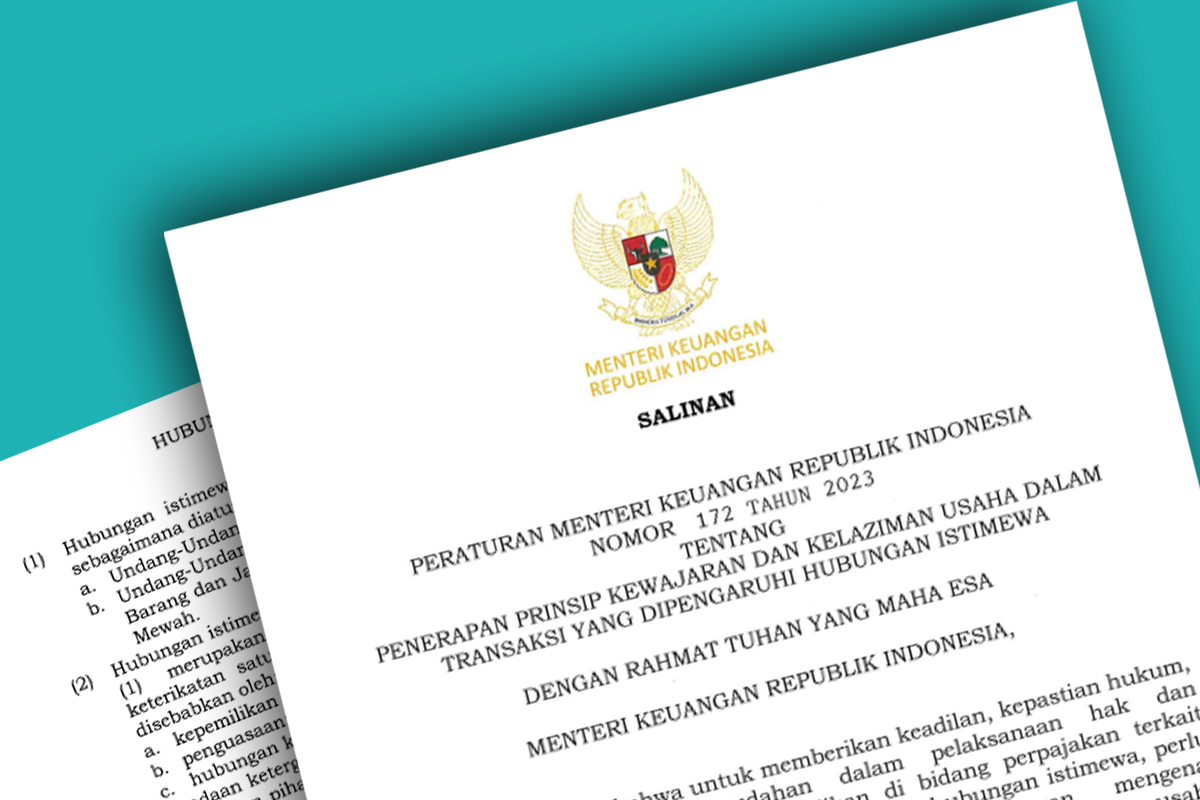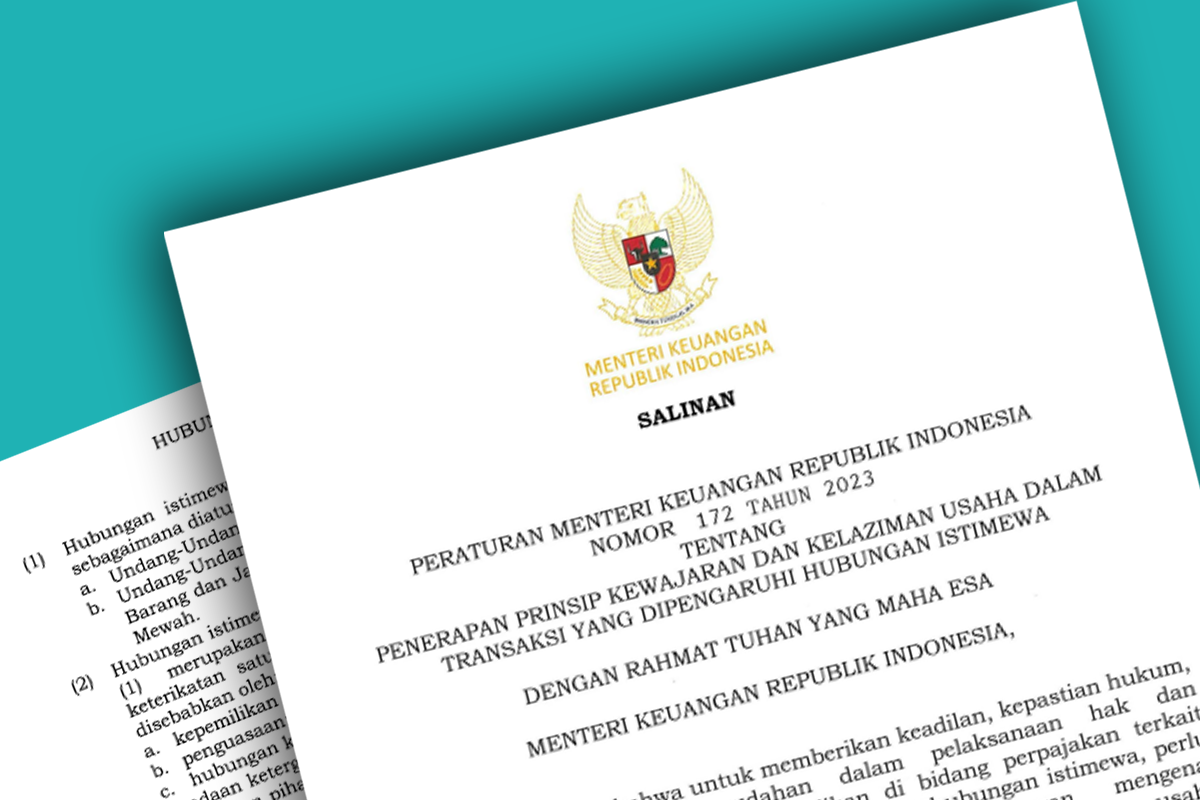The Coronavirus Disease 2019 (Covid-19) pandemic has caused losses to many companies following the falling demand, limited supply of goods or services, as well as soaring operating costs - such as exceptional costs, extraordinary costs, and non-recurring costs. Consequently, the allocation of losses between related parties has the potential to trigger a dispute between taxpayers and the tax authorities.
This issue was taken into consideration by the Organisation for Economic Co-operation and Development (OECD) when releasing transfer pricing documentation guidelines for companies affected by Covid-19 (Guidance on the Transfer Pricing Implications of the Covid-19 Pandemic). Especially with regard to three important things in conducting a comparability analysis, namely: (1) allocation of risks between related parties; (2) non-recurring operational costs; and (3) force majeure clauses.
Limited Risk
The first point relates to the losses by entities with limited-risk characteristics--commonly used in businesses although they do not have a specific definition in the OECD Transfer Pricing Guidelines (TPG). In this case, it does not rule out that the entity with limited risk may suffer losses in the short run. However, this does not apply if, for example, the limited-risk distributor does not bear any market risk, credit risk, or other special risks yet incurs losses. In principle, it remains necessary to consider specific facts and circumstances when determining whether an entity can be categorized as a limited risk.?
Furthermore, the Transactional Net Margin Method (TNMM) or Resale Minus Method (Resale Price Method/RPM) can be used by taxpayers as the most appropriate method to test the arm's length nature of the return, surely by first carrying out full and?accurate delineation of the transaction.
Besides, tax authorities also need to pay attention to taxpayers' limited-risk claims between before and after the Covid-19 pandemic. Are there any inconsistencies in the disclosure? Or, was it caused by business restructuring? If the reallocation of risk is recognized under an accurate delineation of the transaction, the taxpayer's claim must be supported by an analysis of all the facts and specific?circumstances?as well as relevant evidence.
In dealing with the consequences arising from the Covid-19 pandemic, a modification to the arrangements between related parties is also possible. However, the emphasis is needed in the absence of clear evidence that independent parties in comparable circumstances revise the agreements or commercial relations, that the modification of the arrangement and/or commercial relationship of related parties will be inconsistent with the arm's length principle. Accordingly,
the accurate delineation of the transaction and consideration of any realistic options available will determine whether the revision of intercompany agreements is consistent with the behaviour of independent parties.
Specific Costs
Non-recurring operational costs are related to operating costs or exceptional costs associated with Covid-19. For example, expenditure on Personal Protective Equipment (PPE), reconfiguration of workspaces to enable physical distancing, information and technology infrastructure costs relating to test, track, and trace obligations, as well as the implementation of teleworking arrangements.
All of those costs can be allocated to related parties and suppliers or customers. It depends on who has the responsibility to bear the costs, which party will benefit from the product or service underlying these costs, and whether the costs will be allocated between independent parties operating in comparable circumstances. Therefore, it is necessary to accurately delineate the transaction before identifying which party will receive the cost allocation.
Furthermore, certain operating costs may not be viewed as exceptional or non-recurring costs in which the costs relate to long-term or permanent changes. For example, certain costs incurred as a result of changing work from office arrangements?to teleworking arrangements or work from home. On the other hand, the reduction or elimination of certain operating costs may also occur, depending on the actual underlying facts and circumstances. These include costs on rent, the day-to-day running expenses of a physical office, and employee travel-related expenses.
Comparability Analysis
In the latest TPG, the OECD elaborates the concept of comparability analysis that should be the concern of businesses in the midst of the Covid-19 pandemic. The analysis relates to the risks and costs that may arise during the pandemic. The following are three ways to perform an exceptional cost calculation for a comparability analysis application.
First, exceptional costs should generally be excluded from the net profit indicator, except when those costs relate to the controlled transaction as accurately delineated and must be done consistently between the tested party and the comparables.
Second, when determining a cost basis, it is important to determine which party will reasonably bear those additional costs in the controlled transactions. Meanwhile, if the cost basis includes pass-through costs, the costs should not be attributed as profit elements.
Third, it is necessary to make a comparability adjustment in connection with accounting consistency practices between the tested party and the comparables. When it comes to comparability analysis, the OECD has also introduced the concept of contemporaneous uncontrolled transactions which is important for taxpayers when dealing with various risks and uncertainties amid the Covid-19 pandemic.
Force Majeure?
The Covid-19 pandemic is actually in the category of force majeure that can affect the allocation of losses. In principle, force majeure clauses may be invoked in order to suspend, defer, or release an enterprise from its contractual duties. However,?this may result in losses to enterprises because of the loss of a customer, supplier, or an ordinarily profitable contract, and could also lead to the closure of business operations and restructuring costs.
Some examples of force majeure events arising in the context of COVID-19 are the prohibition of activities by governmental bodies through the enforced closure of production or retail facilities for a certain period. Thus, a party may attempt to assert a force majeure on the basis of the prohibition because it is beyond the control of the party.
The categorization of Covid-19 as force majeure will depend on the definition of force majeure in the agreement. In addition, the accurate delineation of controlled transactions will determine whether the use of force majeure is permitted. This includes a consideration of the behavior of the parties involved in the agreement, both past and present, as well as the economically relevant circumstances of the transaction.
Accordingly, tax authorities should review the agreements and/or the conduct of related parties to ascertain whether any statement, revision, or renegotiation has referred to the OECD TPG, and that the transfer pricing outcomes are in accordance with the accurate delineation of the transaction.
**) A short version of the article was published in?Kumparan.com?on 5 January 2021







